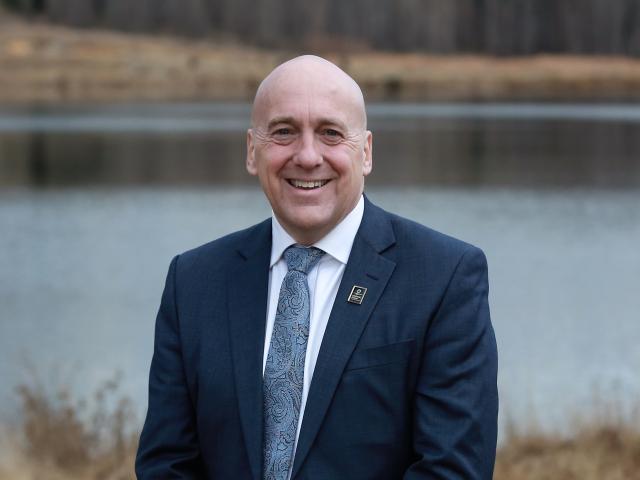Southern mayors say the Government’s changes to its planned Three Waters reforms show councils can gain traction without joining splinter groups.
They remained concerned about some aspects of the reforms under way for drinking water, stormwater, and wastewater services.
But Infrastructure Minister Grant Robertson and Local Government Minister Nanaia Mahuta’s update yesterday was welcomed as a sign that the Government was taking council feedback on board.
Mr Robertson and Ms Mahuta jointly announced the Government was adopting almost all the recommendations from a working group established in November as concerns mounted about the reforms.
They unveiled a council shareholder structure for the proposed water services entities, in which all shares of the new entities would be allocated to councils based on population.
There would be equal representation of mana whenua and councils on "regional representative groups".
But the people those groups appointed to operate the entities at a board level were to be appointed based on skills and competency, rather than adhering to any co-governance quotas.
Subcommittees would feed into the regional representative group, to make sure local voices were considered as part of investment prioritisation, they said.

Reactions from mayors yesterday ranged from calling the amendments very positive to mere tinkering at the edges.
Central Otago Mayor Tim Cadogan, who was the southern representative on the working group, said he continued to have concerns about the reforms as proposed.
However, he said the Government endorsement of 45 of the 47 recommendations the working group made was a good result.
"At a personal level, it was an awful lot of work that went into breaking down the original Government plan and rebuilding something better," Mr Cadogan said.
"My view is that the Government’s absolutely going to go ahead with these reforms and so any opportunity to make the reforms work better for the community that I serve was an opportunity not to be wasted."

He said the shares to be held by each council gave even the smallest council veto power to essentially block any future move to privatisation.
"And privatisation is one of the big fears that I have and that a lot of people have."
The Government plans to amalgamate water services, now owned and operated by 67 councils, into just four water entities.
Dunedin Mayor Aaron Hawkins, whose council last month withdrew from the controversial group formed to oppose the reforms, Communities 4 Local Democracy (C4LD), singled out the size of the four entities as a problem.

"That said, for as long as government are pursuing this, we need to do what we can to shape the legislation in our favour."
Yesterday’s announcement showed a willingness to respond to genuine concerns "and the value of taking a constructive, rather than a combative, approach", Mr Hawkins said.

Queenstown Lakes Mayor Jim Boult, whose council this week also pulled out of the lobby group, said he was pleased the Government was listening.
The amendments would give locals more say and more ownership in the new water services structure, he said.
The ministers’ announcement yesterday was a "stunning endorsement" of the working group recommendations, Clutha Mayor Bryan Cadogan said.
"The anxiety that we constantly hear about is predominantly coming from about a quarter of the population in New Zealand’s councils, what about the other three quarters of us that have remained constructive and have been determined that we are going to present workable solutions and refinements to the reforms that best serve our community?
"Today’s announcement is vindication of that move."

Waitaki Mayor Gary Kircher said there was a lot of opposition to the reforms that went beyond the lobby group.
He remained opposed to the "one-size fits all solution" being pushed by the Government.
Ngai Tahu kaiwhakahaere (chairwoman) Lisa Tumahai said the Government should be commended for accepting the working group’s advice while not taking its eye off the ultimate goal of equitable, safe, and affordable water services.
National said the announcement did nothing to address key concerns communities had about the "fatally flawed" reforms.
Act said any future Government it was a part of would repeal the reforms.
Comments
Ratepayers can be 100% assured that they will be paying for these changes. When you get significant water bills each month please think of Mayor Hawkins, Walker, Geary and Benson-pope and how they failed your interests while we have good water quality and waste disposal. Iwi will use this step as a springboard to water ownership claims. This will be regarded as a disaster by most citizens of Dunedin within five years. Thanks Mayor Hawkins
Alarmist.
We do not have good water quality.
I think Bryan Cadogan's math is flawed if he thinks three-quarters of the population support this. If his comments are on the council numbers who are not part of the "splinter group", let's remember two of them are Auckland and Christchurch - our two biggest cities. Dunedin did leave until a certain group threw their toys out until they got their way. Let all these councillors and mayors stand on three waters at the election and see the result.
I cease to be amazed at those who hold power at the local level have no idea of the consequences of these undemocratic proposals. They seem to not realise that the most controversial aspects of the reforms "co-governance" proposals remain largely intact.
Only controversial because it hasn't happened.
These people elected by ratepayers are certainly not serving them as they should. So many councillors have political affiliations and vote accordingly to support their political party. The Three Water legislation is a rort. Co-governce and its associated cost is an absolute joke and is doomed to failure. These elected people should all be voted out. They should pay the price for not representing us on vital matters affecting everyone. So much for a team of 5 million - just more division.










